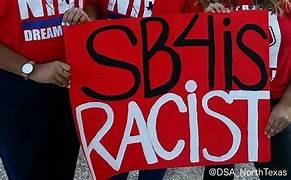A recent development in the sphere of immigration legislation in Texas has sparked considerable attention and discussion. The Fifth Circuit Court of Appeals has issued a freeze on Texas’ Senate Bill 4 (SB4), a controversial piece of legislation that garnered national scrutiny for its approach to immigration enforcement. This decision has sparked discussions about the balance between state and federal authority in immigration matters and the impact of such laws on communities and law enforcement agencies.
Senate Bill 4, also known as SB4, was passed by the Texas legislature in 2017 and signed into law by then-Governor Greg Abbott. The law sought to crack down on so-called “sanctuary cities” by allowing law enforcement officers to inquire about the immigration status of individuals during routine interactions such as traffic stops. It also required local authorities to comply with federal immigration detainer requests.
However, SB4 faced legal challenges almost immediately after its enactment. Critics argued that the law encouraged racial profiling, undermined trust between immigrant communities and law enforcement, and exceeded state authority by delving into federal immigration enforcement, which is primarily the responsibility of the federal government.
The freeze imposed by the Fifth Circuit Court of Appeals temporarily halts the enforcement of key provisions of SB4 while the legal challenges against the law continue. This includes the provision that allows law enforcement officers to question individuals about their immigration status and the requirement for local authorities to honor federal immigration detainer requests.
The decision to freeze SB4 highlights the complex legal landscape surrounding immigration policies, especially when state laws intersect with federal jurisdiction. It raises questions about the extent of state authority in shaping immigration enforcement policies and the potential conflicts that may arise between state and federal mandates.
Proponents of SB4 argue that it is essential for law enforcement agencies to cooperate with federal immigration authorities to uphold public safety and national security. They contend that sanctuary policies hinder efforts to identify and apprehend individuals who pose a threat to communities.
On the other hand, opponents argue that laws like SB4 create a climate of fear and mistrust, particularly among immigrant communities. They argue that such measures can deter individuals from reporting crimes, seeking healthcare, or participating in other essential activities, ultimately compromising public safety and community well-being.
The freeze on SB4 by the Fifth Circuit Court of Appeals represents a reprieve for immigrant advocacy groups and communities who have been vocal in their opposition to the law. It allows for further legal deliberation and examination of the law’s constitutionality and potential impacts.
The case of SB4 in Texas is part of a broader national conversation about immigration policy and enforcement. It underscores the challenges of finding a balance between immigration control, and law enforcement priorities, and safeguarding the rights and dignity of all individuals, regardless of their immigration status.
Looking ahead, the future of SB4 and analogous laws will probably be shaped by ongoing legal disputes and judicial analyses. The outcome will have far-reaching implications for immigration policies not only in Texas but also across the United States as states grapple with their roles and responsibilities in the realm of immigration enforcement.









